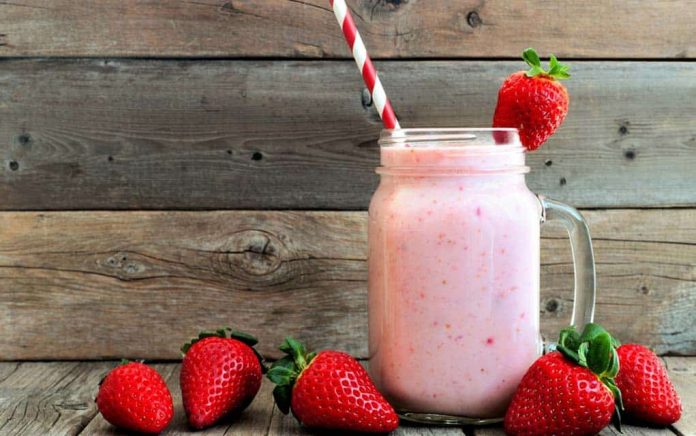
(HealthyResearch.com) – Sweet, satisfying and refreshing, a cold smoothie can really hit the spot on a hot day. Some are healthier than others, but many of them could be downright hazardous to a healthy diet. Here’s what to watch out for.
Filler Juices
Many smoothies can have deceiving packaging, and even the look of a product itself can imply the smoothie is healthier than it actually is. Take Odwalla’s Original Superfood Fruit Smoothie, for example. According to Eat This, Not That! not even 1% of the ingredients contribute to the product’s green color, with apple juice making up the bulk of the drink.
Similarly, Naked’s Power-C Machine lists water and apple juice concentrate as its first two ingredients. If that’s not bad enough, the massive dose of vitamin C, as well as the moderate zinc content, come in the form of added supplements. So basically you’re paying top dollar for apple juice flavored with a few other juices and a ridiculously high dose of vitamin C.
Always look at the ingredients to make sure a smoothie isn’t filled with cheap juices and false implications.
Added Sugars
Many restaurant chain smoothies aren’t much better. Spoon University warns that a lot of popular smoothies are loaded with added sugars. Consider Panera’s Low-Fat Mango Smoothie, which contains 57 grams of sugar, or Smoothie King’s Passionfruit Peach Hydrator, which has 76 grams. Some are even worse: Cold Stone’s Mango Pineapple smoothie packs in 112 grams of sugar, and Smoothie King’s “The Hulk” Strawberry smoothie contains a whopping 154 grams.
Considering that the maximum recommended sugar intake is 36 grams a day for men and 25 grams per day for women, some of these smoothies are health issues just waiting to happen.
Make Your Own
Homemade smoothies are simple to make, and because the user can choose what to add in, it’s easy to keep them healthy. Nutribullet recommends using a variety of greens and fruits, being sure not to overdo the latter in an attempt to mask the bitterness of the former. Try to aim for a low-sugar, high-fiber drink that offers a good balance of carbs, protein and healthy fats.
Consider this spinach and kale smoothie, which uses peanut butter, chia seeds and almond milk to add protein and flavor. Or try a recipe that includes bananas and yogurt to mask the greens. Play around with recipes to find a smoothie that suits your needs and your palate.
Smoothies aren’t all bad, but they definitely aren’t all created equal either. Read labels and avoid smoothies that contain filler juices or added sugars. If in doubt, find a good recipe or two and make smoothies at home. It might take a few tries, but healthy and delicious can coincide.
~Here’s to Your Health & Safety!
Copyright 2021, HealthyResearch.com
















